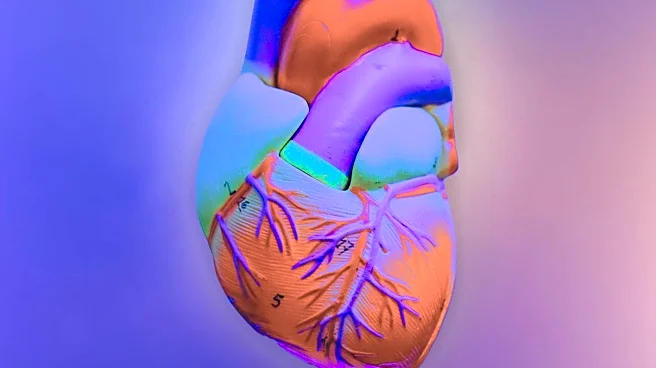What's Happening?
President Trump has been assessed to have a cardiac age of 65, which is 14 years younger than his chronological age. This evaluation was conducted by his doctor following a recent medical examination.
The concept of cardiac age is derived from biological age, which measures the rate of aging compared to peers. Cardiologist Doug Vaughan explains that cardiac age is a measure of heart health, and advancements in AI technology have enabled more precise assessments. Electrocardiograms (EKGs) are used to record the heart's electrical activity, and AI models analyze data from millions of EKGs to detect patterns that correlate with disease risk and age. These AI models can identify subtle features that are not visible to the human eye, providing a new tool for preventive medicine.
Why It's Important?
The use of AI in assessing cardiac age represents a significant advancement in preventive medicine. By identifying heart health issues earlier, there is potential to intervene and prevent heart disease more effectively. This technology could lead to routine assessments of biological age, offering insights into individual health risks and enabling personalized healthcare strategies. The broader impact on public health could be substantial, as early detection and intervention may reduce healthcare costs and improve quality of life. Stakeholders in the healthcare industry, including medical professionals and technology developers, stand to benefit from these advancements.
What's Next?
As AI models continue to be tested and validated, they may become a standard tool in medical evaluations. The next wave of preventive medicine could involve measuring biological age at earlier stages in life, potentially starting in one's 20s. This shift could lead to more proactive healthcare approaches, with increased focus on early intervention and personalized treatment plans. Medical professionals and healthcare institutions may need to adapt to these technological changes, integrating AI assessments into routine practice.
Beyond the Headlines
The ethical implications of using AI in medical assessments include concerns about data privacy and the accuracy of AI models. As these technologies become more prevalent, there will be a need for regulations to ensure patient data is protected and AI assessments are reliable. Additionally, the cultural shift towards technology-driven healthcare may influence public perceptions of medical practice and the role of human expertise in health assessments.











